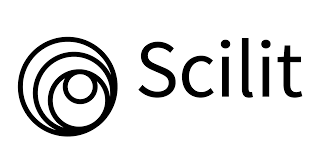REPRESENTASI BUDAYA KONSUMEN DI KOMUNITAS MINIMALIS LYFE WITH LESS
DOI:
https://doi.org/10.38043/jids.v5i2.3201Keywords:
Etnografi Virtual, Budaya KonsumerismeAbstract
The culture of consumerism is almost a pathology for people all over the world. Consumerism culture according to Jean Baudrillard is the fulfillment of the human need for signs. Therefore, it is also necessary to identify a consumerist culture in a minimalist community that has thoughts or principles that are contrary to consumerism. The Lyfe With Less minimalist community or can be shortened to the LWL community is an Indonesian minimalist community. This community is a place for people to learn to be minimalist. Minimalism is closely related to reducing consumption in life, in order to get more happiness. Based on the many programs owned by the LWL community, there is one program that is the hallmark of this community. The programs are cross-linked. The research objective is to answer major and minor questions. The major question is how the interrelationships of consumer culture and processes in the LWL community are interrelated. While the minor question is how the involvement of consumerism culture when the process crosses over. This research method uses a virtual ethnographic qualitative method. The results show that the LWL minimalist community has anti-consumerism thoughts, including cross-linking programs to extend the functionality of goods.
Downloads
References
Creswell, JW. (2002). Reseach Design: Qualitative, Quantitative, and Mixt Method Approach (Second Edition). London: Sage Publication.
Fakrulloh, Z. A. dan Wismulyani, E. (2019). Permasalahan Penduduk Perkotaan. Klaten: Cempaka Putih.
Haryanto, S. (2012). Spektrum Teori Sosial: Dari Klasik Hingga Posmodern. Yogyakarta: Ar-Ruzz Media.
Sadewo, F. S. (2016). Meneliti itu Mudah. Surabaya: Unesa University Press.
Suyanto, B. (2017). Sosiologi Ekonomi: Kapitalisme dan Konsumsi di Era Masyarakat Post-Modernisme Edisi Pertama. Jakarta: Kencana.
Tazid, A. (2017). Tokoh, Konsep, dan Kata Kunci Teori Postmodern. Yogyakarta: Deepublish Publisher.
Dopiera?a, R. (2017). Minimalism–a new mode of consumption?. Przegl?d Socjologiczny, 66(4), 67-83.
Hikmah, S. N. (2020). “Minimalisme: Studi Kasus 3 Perempuan Karier BergayaHidup Minimalis di Kota Makassar”. Skripsi Departemen Antropologi FISIP Universitas Hasanuddin.
Lopez Palafox, C. (2020). When less is more: minimalism and the environment. Environmental and Earth Law Journal (EELJ), 10(1), 1.
Uggla, Y. (2019). Taking back control: Minimalism as a reaction to high speed and overload in contemporary society. Sociologisk forskning, 56(3-4), 233-252.
Downloads
Published
How to Cite
Issue
Section
License

This work is licensed under a Creative Commons Attribution-ShareAlike 4.0 International License.
















